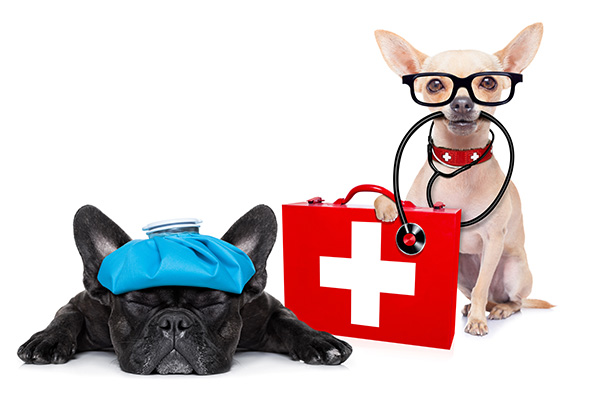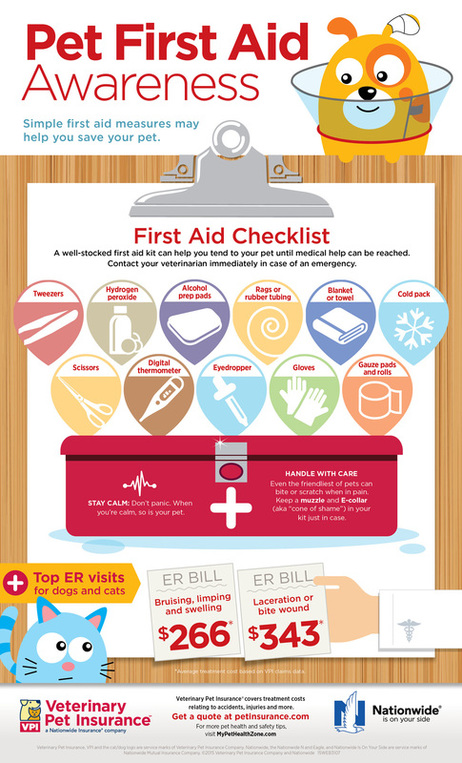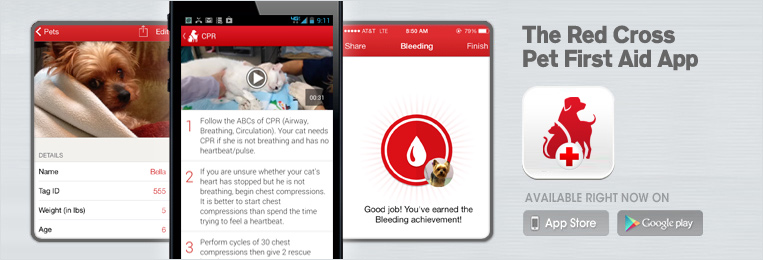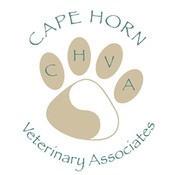FIRST AID TIPS
|
Do you know what to do during a pet emergency? Here are some common emergency tips:
From the American Red Cross |
|
Putting together a well-provisioned first aid kit will make you more ready to deal with a medical emergency if one confronts you for your dog, cat or other pet. Have this kit in the house and fully stocked with supplies at all times, next to the first aid kit for your family. Many of the items in a family first aid kit can be used for pets, too.
From the American Veterinary Medical Association |
More lifesaving information is available on the Red Cross Pet First Aid App that helps dog and cat owners to provide emergency care until veterinary assistance is available. Owners have access to step-by-step instructions, videos and images for more than 25 common first aid emergencies.






